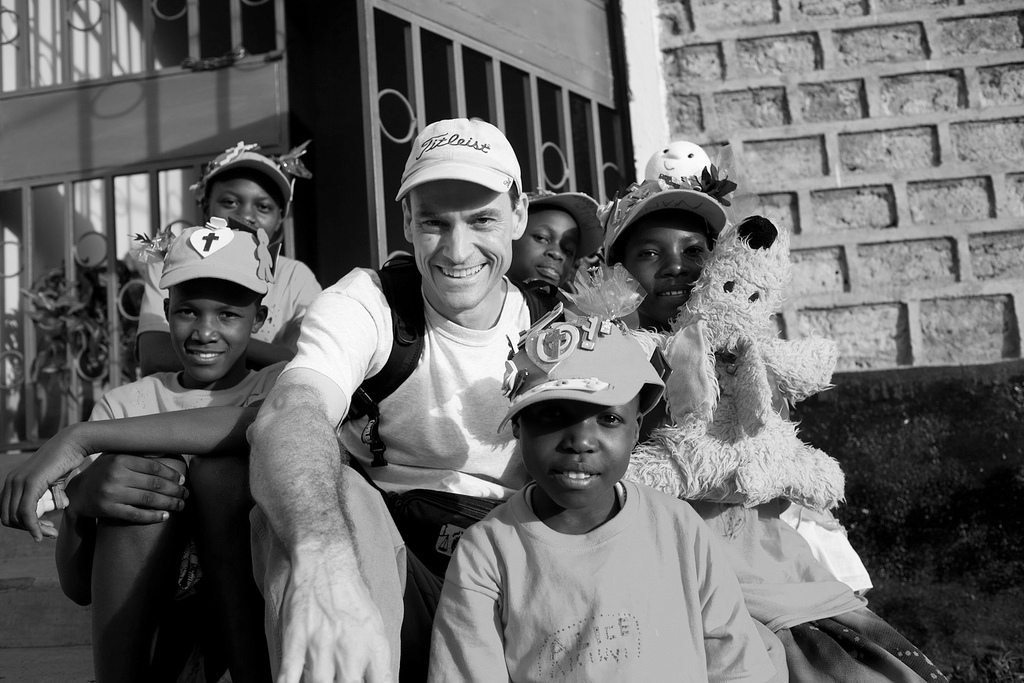
I can’t begin to count the presentations I’ve been to where an organization explains how they spent their last two weeks volunteering in “Africa,” rather than describing the particular country or region in Africa they worked in. I can go on about how Africa isn’t one country, how diverse the language, culture and geography are but that would just be singing an old song. This is about respecting the people.
We’ve all seen the classic, insta-ready picture of those who partake in voluntourism or mission work in Africa. A boy wearing sunglasses, cargo shorts and tennis shoes. A girl usually wearing a long skirt and a T-shirt, something that doesn’t expose too much cleavage, and light to no makeup. Surrounding them is a ring of smiling African children–the perfect accessory.
Somehow, regardless of whether the goal of the trip is to build houses or be part of a medical brigade, trips to Africa always end up with a visit to the local orphanage. The volunteers play with laughing children who, by now, are accustomed to the constant flow of visitors who meander in and out of their lives often bringing sweets and toys.
The children doubtlessly enjoy the attention and the gifts that come with the visitors. And based off of the smile or laughter that’s usually in the classic “my visit to Africa” photo, the visitors seem to enjoy the time they’ve spent with the children and most of the people in that particular region. How then can these visitors go home only to dishonor these people and the towns they have worked in?
As visitors, they have encountered people who have shared their stories, homes and lives willingly. The least one could do in return is to honor these peoples’ culture and identity by using their proper name. Their country. Their village. Their tribe.
When people go back to their home and describe the places they’ve been by lumping them in as one large continent, it holds a spirit of disrespect to those whom they have worked alongside, often eager to showcase just how much they truly “cared”.
When the awful death of Sandra Bland took place last year, it brought about the #sayhername campaign.To say her name was to recognize her: to acknowledge the awful thing happened to her. It was a way of confronting the police brutality that led to the end of her life. It was a way for the people to serve as a witness and show that the public would not forget her life.
In the same way to say the names of the places and people you encounter while participating in missions work or aid work in Africa, is to be a witness to those people. It is to see the experiences that they have shared with you and show that you will not forget what you have learned there: to return home with nothing but new Instagram pictures is unjust.
Often times when others are urged to use the proper name of where they’ve been, their argument is, “what if the people I’m addressing don’t know where that is?” My response is that they have a phone and Google is free. We need to stop catering to people as if they don’t have the resources to educate themselves. Stop dumbing down Africa because people are too lazy to put in the (admittedly little) effort required to start seeing the bigger picture. But I guess that’s it– people just don’t care enough.
The sad truth is that the lack of integrity that comes with generalizing people and regions in Africa pays tribute to the idea that somehow the tourist is the hero of the story. Juxtaposed next to black, they are the white knight coming to save Africa through a two week medical brigade. When they say, “I went to a village in Africa,” what it registers is the “I,” the subject of the sentence. They need not share specifics, because already they have articulated everything that is important–that they did something charitable.

